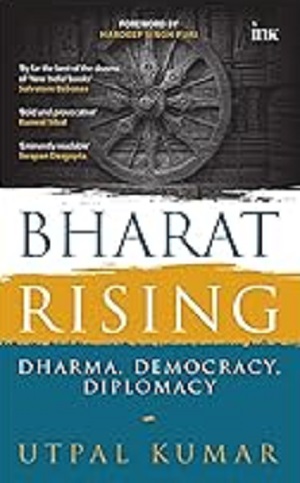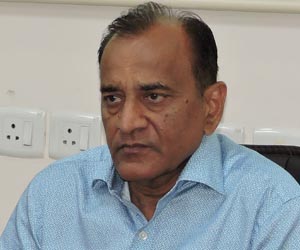When a colonised nation gets rid of its masters, one of its first acts is to reclaim its civilisational and cultural narrative, a legacy that had been pummelled and distorted beyond recognition and replaced by the coloniser’s worldview. For, what better way there is to destroy the spirit of a people than to ridicule and suppress their language, their cultural traditions, their religious beliefs and their way of life? Local heroes are consigned to the dustbins, deeply-rooted cultural values are labelled as misfits in the modern world, etc. and through these and similar other measures, the coloniser imprints upon the character of the nation he lords over, a new set of values that are not only alien but also designed to discredit and erase the old.
However, it took India sixty-seven years after independence to truly kickstart the project of cultural reclamation. It might have taken even longer, had not a major disruption occurred in 2014, when a rank outsider by the name of Naren-dra Modi crashed into the exclusive club of national satraps that got to be fa-mously identified as ‘Lutyens’ Delhi club’ or the ‘Khan Market group.’ As Prime Minister, he set the ball rolling for a sort of cultural renaissance; essen-tially, it brought to the fore the country’s civilisational and cultural legacy—represented by men and women and institutions and places of worship for cen-turies, forgotten and buried by the erstwhile privileged lot. Finally, we had a prime minister who was not only unapologetic about either his religious and spiritual beliefs and the country’s ancient cultural moorings but also had the courage to demonstrate those beliefs, in the process energising the vast masses of the population into sharing the pride and honour that came with being in con-sonance.
In his book, Bharat Rising: Dharma, Democracy, Diplomacy, Utpal Kumar has made a commendable effort to sketch this transformation that has impacted not just the people of India that is Bharat, but also left its mark on in-ternal governance and diplomatic outreaches of the Modi government. He has contextualised the changes by providing a background of what existed before Modi arrived on the national stage. In doing so, the author has correctly identi-fied the core reason for the delayed response post-Independence: How could a cultural renaissance happen when people at the head of governments and im-portant institutions had been brainwashed, and had internalised the teachings of the colonial masters?
It is important to underline here, for those who allege that the Modi government has gone overboard in ‘reviving the past at the cost of modernisation,’ that Vi-kas (Development) and Virasat (Legacy) have gone hand-in-hand. A wide and never-seen-before network of quality infrastructure and other techno-logical innovations to make the lives of people easier have also been created—and are being created—alongside the construction of a grand Ram temple in Ayodhya. Prime Minister’s various forays in the religious-spiritual arena (pray-ing underwater at Dwarka, or in a cave in Kedarnath, or inaugurating an im-pressive temple in Abu Dhabi, etc.), have been complemented with the opening up of grand projects such as the Sudarshan Setu in Gujarat and Atal Setu in Maharashtra, to name only two.
Utpal Kumar has divided his narrative into two parts: Dharma and Democracy, and, Democracy and Diplomacy. He traces developments in both since the time of Independence to the present. Quite understandably, he posits Kashi and Ayodhya as examples of what he calls a ‘historical awakening’ and exposes the machinations of the so-called liberals and secularists who have sought to ruin what the nation ought to be proud of. The exploitation of caste fault lines to di-vide, rather than find methods to promote unification, as the author points out, has been one of the many weapons in the armoury of the secular-liberals.
In one of his chapters—Three Musketeers and the Nehruvian Tyranny—Utpal Kumar refers to the tirade against what many Western observers (in collusion with some of their Indian counterparts) have contemptuously dubbed as ‘histor-ical revisionism.’ He deals with the Nehru-Savarkar contrast, and then takes the thought forward and reminds the readers of the near obliteration of the memory of thousands of freedom-fighters merely because they were ‘on the other side of the politico-ideological divide.’ In particular, he mentions Netaji Subhas Chan-dra Bose, VD Savarkar and R Ambedkar.
Having set in motion the process of cultural revivalism, the government of Prime Minister Modi did not limit the campaign within India’s borders, but through some deft diplomatic initiatives, extended it to the rest of the world. In keeping with military strategist and philosopher Chanakya’s methods, Modi’s diplomacy was, in the author’s words, ‘assertive’ rather than ‘offensive.’ Per-haps, this is the reason that India has been able to win over friends and influ-ence people across the globe; it has been able to strike cordial relationships with nations that are at loggerheads with one another (Russia and the US, or, Israel and the Islamic world, for example). The core is simple: India’s interests come first. This is the ‘brave, new diplomacy’ that the author talks of.
The media, at least in a free and democratic setup, plays a prominent role in shaping opinions and perceptions. This has been true of the Indian media as well, large sections of which had been fed with and influenced by the left-liberal cabal. Matching their endeavours to ridicule the Indian-ness has been the Western press, for decades. Utpal Kumar refers to several coverages of the Western media, in which the journalists, many of whom have hardly any first-hand understanding of the India, write pompously of Modi’s emphasis on a ‘muscular nationalism centered on the country’s Hindu majority.’ And, add, that such an approach is at odds ‘with the interfaith, multicultural goals of mod-ern India’s founders.’ The author points out the hypocrisy and double speak in the Western press—besides its flawed reading of the Indian system—when it goes silent on China. Sections of the foreign media do not tire of talking of the ‘treatment of Muslims’ in India; never mind if these commentators have never set foot in India, spoken to Indian Muslims, or studied their conditions.
Utpal Kumar has, though Bharat Rising, offered a template that other writers will, hopefully, benefit from. After all, decades of indoctrination cannot be undone through one book, or a few more. It requires a monumental and sus-tained effort, and more such writers as Utpal Kumar.











Post new comment